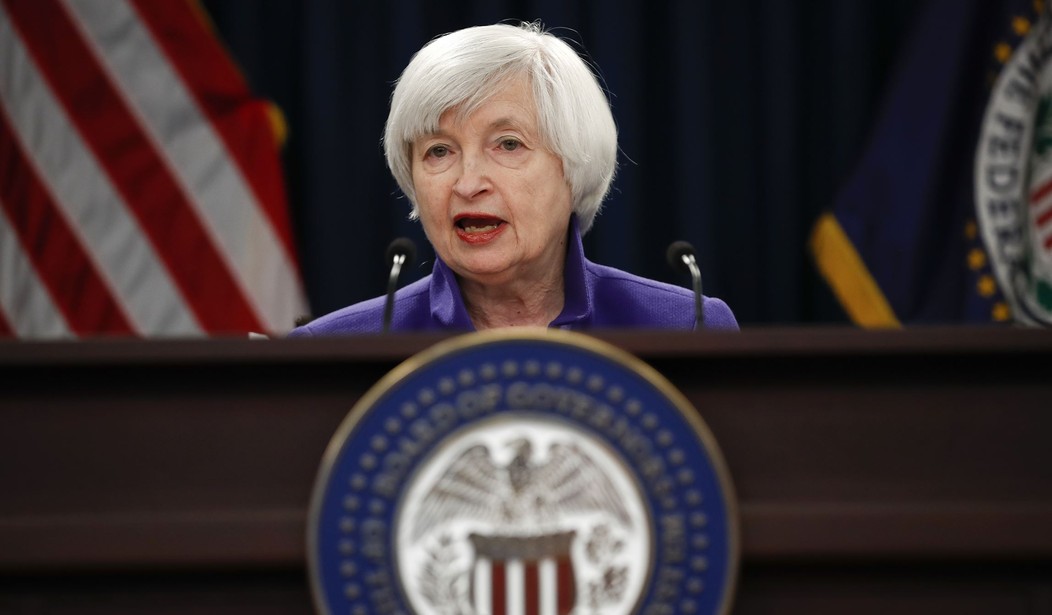New polling data from Gallup show Americans are not having an easy time through this period of rising prices.
According to Gallup, 56% of Americans say now that rising prices are causing severe or moderate hardship.
Drilling down, we see that the hardship is not shared equally.
Among low-income households, those with income less than $48,000, 74% report they are experiencing hardship. Among middle-income households, with income $48,000 to $89,999, 63% report hardship. And among upper income, $90,000 and above, 40% report experiencing hardship.
But Secretary of the Treasury Janet Yellen showed up at Ford's Rouge Electric Vehicle Center in Dearborn, Michigan, recently with an upbeat economic message reminiscent of the joke, "Who are you going to believe, me or your own eyes?"
Yellen announced that she is "more optimistic about the course of our economy than I have been in quite a while."
The Biden administration hopes to blow enough smoke into the eyes of voters so that reality will not set in until the November elections have passed.
Yellen ought to consider reading the latest long-term budget and economic projections form the nonpartisan Congressional Budget Office.
Per CBO's just-published "The 2022 Long-Term Budget Outlook," over the next 30 years, the U.S. budget deficit, as a percent of our GDP, will be double what it has averaged over the last half-century, and national debt as a percentage of GDP will reach historically high levels, arriving to a mind-boggling 185% of GDP in 2052.
Recommended
The result of this ongoing absorption of the U.S. economy into the hands of government and politicians will be, according to CBO, a slowing and sputtering of the U.S. economy.
"From 2022 to 2052, real potential GDP increases an average of 1.7% per year," per the report, compared to an average of 2.4% over the previous 30 years, 1992 to 2021.
However, from 1950 to 2000, the U.S. economy grew at an average annual rate of 3.5%.
So, per the picture CBO paints for us regarding our economic future, we can expect growth to be half what it averaged for the half century following the end of World War II.
What does his mean to the average American?
Per Hoover Institution economist John Cochrane, it means that over the next 50 years household income will be half of what it would have been had the economy grown at the faster historical rate.
This is not a pretty picture for any American.
But for low-income Americans, it is particularly dismal.
The American dream has always been that although you may start with nothing, there is a future for you to build and accumulate wealth.
That dream is being shattered.
And it is being shattered by government and politicians -- Democrats who now control our government -- who pretend to be concerned about these same low-income Americans.
More and more government spending, more and more government sucking the oxygen out of our economy by pulling resources away from the private sector and redirecting it toward political control, supposedly to help "have-nots," just destroys opportunity for everyone.
In Gallup polling reported in a survey done by my organization CURE, 70% of Black Americans feel the country is divided into "haves" and "have-nots," and 57% of Blacks feel they are among the "have-nots."
The challenge of all those who see the whole nation sinking under the weight of misguided government, and certainly I am talking about Republicans, is to reach our Black citizens and get them to believe that the path to opportunity, the path to becoming a "have," is a free economy.
If our Black citizens, and all Americans who feel the country is unfair, realize that freedom, and not government, is the path to wealth creation, we can turn a sinking ship around.
























Join the conversation as a VIP Member